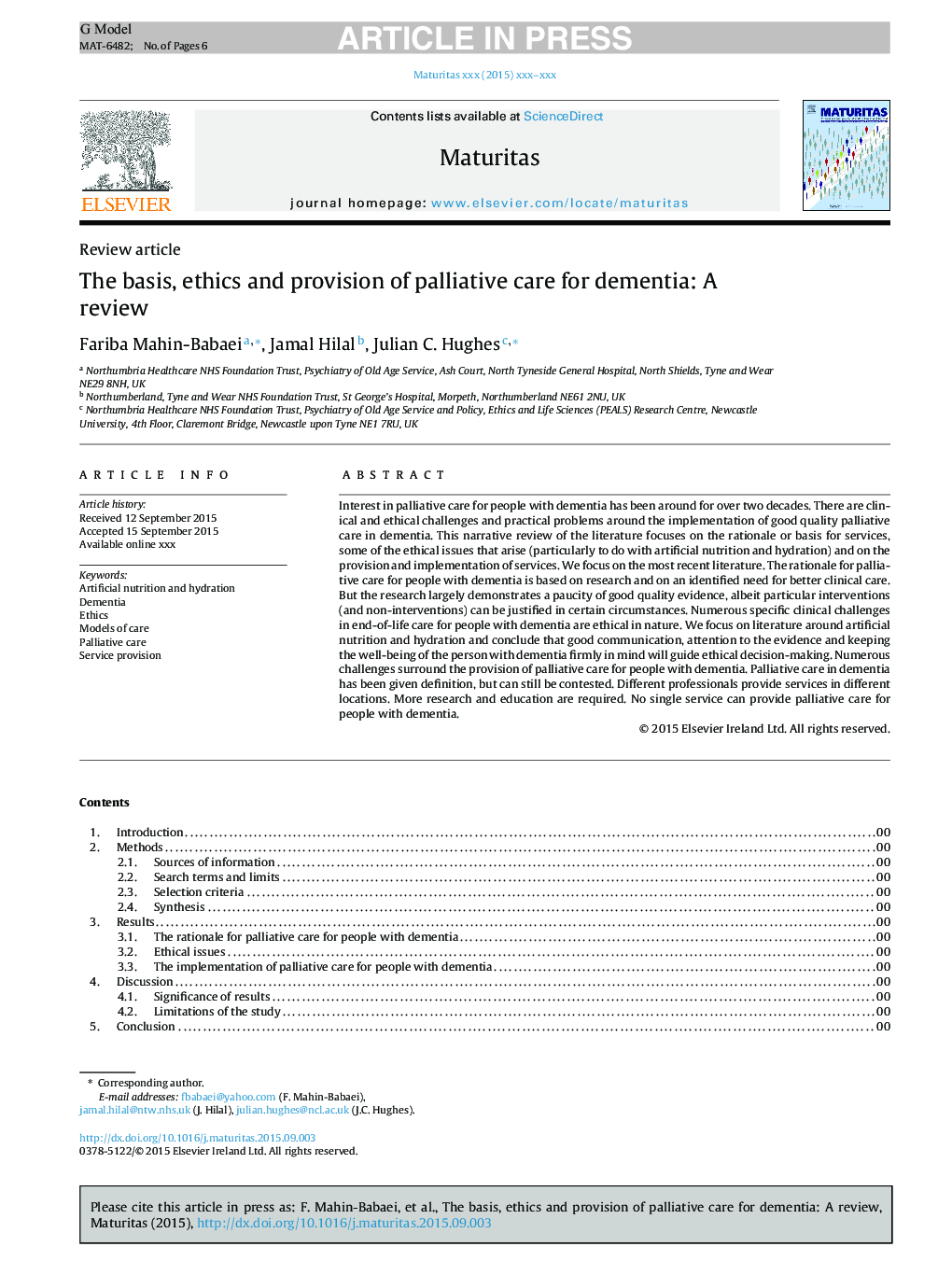| Article ID | Journal | Published Year | Pages | File Type |
|---|---|---|---|---|
| 8284485 | Maturitas | 2016 | 6 Pages |
Abstract
Interest in palliative care for people with dementia has been around for over two decades. There are clinical and ethical challenges and practical problems around the implementation of good quality palliative care in dementia. This narrative review of the literature focuses on the rationale or basis for services, some of the ethical issues that arise (particularly to do with artificial nutrition and hydration) and on the provision and implementation of services. We focus on the most recent literature. The rationale for palliative care for people with dementia is based on research and on an identified need for better clinical care. But the research largely demonstrates a paucity of good quality evidence, albeit particular interventions (and non-interventions) can be justified in certain circumstances. Numerous specific clinical challenges in end-of-life care for people with dementia are ethical in nature. We focus on literature around artificial nutrition and hydration and conclude that good communication, attention to the evidence and keeping the well-being of the person with dementia firmly in mind will guide ethical decision-making. Numerous challenges surround the provision of palliative care for people with dementia. Palliative care in dementia has been given definition, but can still be contested. Different professionals provide services in different locations. More research and education are required. No single service can provide palliative care for people with dementia.
Keywords
Related Topics
Life Sciences
Biochemistry, Genetics and Molecular Biology
Ageing
Authors
Fariba Mahin-Babaei, Jamal Hilal, Julian C. Hughes,
